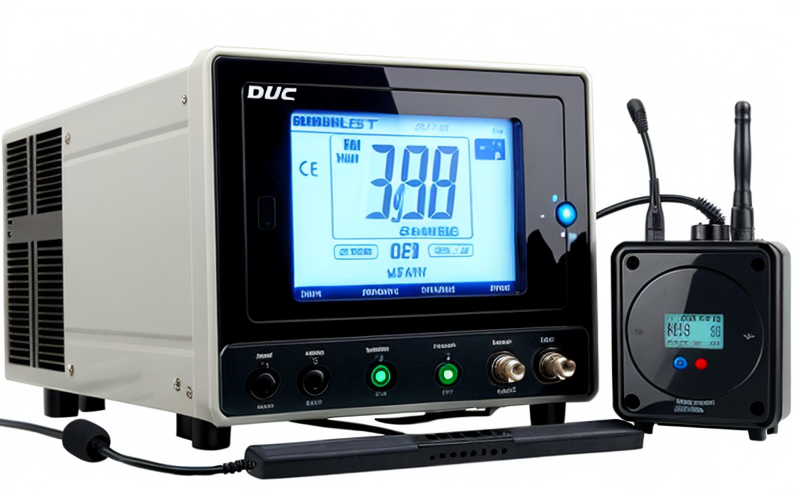ETSI EN 300 440 Short Range Devices RF Testing
The European Telecommunications Standards Institute (ETSI) EN 300 440 standard defines the technical requirements for radio frequency (RF) devices operating within the short range device (SRD) category. Compliance with this standard is mandatory in Europe to ensure that these devices operate safely and do not cause harmful interference to other wireless communication systems.
The scope of ETSI EN 300 440 covers a wide array of devices including Bluetooth, Zigbee, and Wi-Fi transmitters. The standard includes specifications for device classification, emission limits, immunity requirements, and type approval procedures. It aims to harmonize the regulatory environment across Europe, making it easier for manufacturers to comply with national laws.
The testing process involves several stages which are critical for ensuring compliance:
- Classification of devices based on their emission power and frequency range
- Emission tests to ensure that the device does not emit excessive RF signals
- Immunity tests to confirm the robustness of the device against external interference
- Type approval procedures ensuring the conformity of the product with ETSI EN 300 440
The classification process is crucial as it determines which emissions limits and immunity requirements apply. This affects not only the testing but also the certification process. For instance, a Class A device has more stringent requirements compared to a Class B device.
Emission tests are conducted in an anechoic chamber with specific equipment such as spectrum analyzers and power meters. The goal is to measure the RF emissions of the device across its operating frequency range. This helps in verifying that the device does not interfere with other devices within the same or adjacent bands.
Immunity tests, on the other hand, are designed to ensure that the device can operate correctly when exposed to external interference. This includes tests for electromagnetic compatibility (EMC) and radio frequency interference (RFI). The equipment used for these tests includes EMI/RFI chambers and various signal generators.
Type approval procedures involve a detailed review of technical documentation, including circuit diagrams, PCB layouts, and software code. This ensures that the device complies with all requirements before it can be placed on the market.
In addition to these mandatory tests, there are also voluntary tests which provide further assurance of product quality. These include additional emissions testing at different angles, extended immunity testing against a broader range of interference sources, and stress testing under extreme environmental conditions.
Why It Matters
The importance of ETSI EN 300 440 compliance cannot be overstated. Non-compliance can lead to fines, product recalls, and even legal action. Moreover, it impacts the reputation of manufacturers who are seen as not adhering to international standards.
Compliance also ensures that devices operate safely and efficiently within their intended environment. This is particularly important in crowded RF environments where multiple devices are operating simultaneously. Ensuring compliance helps prevent interference which can lead to dropped calls, poor internet connectivity, or even safety hazards in critical applications like medical equipment or aviation.
From an environmental perspective, compliant products contribute to a cleaner and more efficient use of the electromagnetic spectrum. By preventing unnecessary emissions, these devices help conserve energy and reduce the risk of interference with other important services such as emergency communications.
EuroLab Advantages
At EuroLab, we offer a comprehensive range of ETSI EN 300 440 compliance testing services. Our state-of-the-art facilities and experienced engineers ensure that you receive accurate and reliable results.
- Expertise: Our team has extensive experience in wireless communication testing, ensuring that we understand the nuances of each requirement.
- Accreditation: We are ISO/IEC 17025 accredited, providing you with confidence in our capabilities and results.
- Comprehensive Services: From initial consultation to final certification, we offer a one-stop solution for all your testing needs.
In addition to these advantages, EuroLab also provides value-added services such as technical support during the product development phase and assistance with regulatory matters. This ensures that you are not only compliant but also ready for market entry in Europe.
Environmental and Sustainability Contributions
- Emission Reduction: By ensuring that devices comply with ETSI EN 300 440, we help reduce unnecessary emissions which contribute to a cleaner environment.
- Efficient Spectrum Use: Compliant devices operate more efficiently within the allocated spectrum bands, reducing the overall demand on this resource.
The reduction in interference also leads to better energy efficiency as devices do not need to compensate for poor signal quality. This contributes to a more sustainable use of technology and resources.





